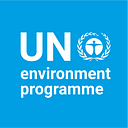The Flipflopi story: Why we built a dhow out of recycled plastic
Dipesh Pabari
One of the things I love most about being Kenyan is our “can-do” attitude. Everyone hustles daily to bring their dreams to life. To make it here, you need ingenuity, resilience and innovation. And those are exactly the qualities we called upon when we decided to build a traditional dhow out of recycled plastic.
Now we are ready to sail our nine-metre Flipflopi dhow from the historic island of Lamu, across 500km of the Indian Ocean, to Stone Town in Zanzibar to launch what we hope will be a game-changing plastic revolution.
Our sprightly, colourful Flipflopi epitomises the Kenyan spirit: built locally in Lamu by master craftsman Ali Skanda and his team, the entire boat was made from around 10 tonnes of plastic trash collected by volunteers. Around 30,000 discarded flip flops were turned into colourful panels to cover the hull and decking. All the work was done locally.
Ali and his technicolor dream boat are now ready to take to the waves on January 24, stopping at towns and cities along the coast as it makes its way to Zanzibar, spreading the message that single-use plastic just doesn’t make any sense.
And we are not here to preach to the converted. Kenyans have long known how to get the most out of every material: from the roadside food vendor who reuses her boxes and bags to the jua kali workers who can fashion your heart’s desire from scavenged materials.
We want to celebrate why we must apply that same logic to plastic, before it is too late. Our aim is to influence emerging consumer populations in Kenya and Tanzania before the throwaway culture that has so blighted richer countries becomes embedded here.
Just as the digital revolution allowed our continent to harness our originality and resourcefulness to come up with new ways of banking, lighting homes and selling produce, we believe we can bypass the plastic curse. We have the opportunity for a definitive leapfrog moment, and that’s what we want to catalyse with our Flipflopi voyage.
We’ve already tested the Flipflopi on the water and she sails like a dream. We hope the voyage will be smooth but we are well-equipped to deal with any offshore challenges. Ali Skanda and the boat’s engineer will be on board and we will have a back-up dhow as well.
When we come ashore, we’ll be talking to communities about their plastic use and giving them practical demonstrations of how they too can recycle their plastic so that it doesn’t end up in our beautiful ocean. Our recycling workshops will be targeted at these communities’ needs: no fancy technology, just ideas that can easily be adopted and inspire more innovation.
This is very important for the team, which includes Kenyan-raised tour operator Ben Morison as well as Skanda and a dedicated group of volunteers. This always had to be a Kenyan project, an African project. We wanted it to be achievable in this environment, our environment.
I remember my first dhow trip, just over a decade ago. We sailed from Lamu, up towards the Somali border in search of the endangered dugong and it was one of the most memorable moments of my life. The feeling of simplicity, tranquility, serenity and being at one with the ocean was unforgettable.
We want to recapture this purity on our expedition because fundamentally our message is a simple one: we need to pay attention to our planet, protect our oceans and stop the thoughtless consumerism that is placing our very existence in jeopardy.
Our Flipflopi fuses the past and the present, and the result is a thing of beauty. We all need a similar transformation. To reinvent humanity and ensure our own survival, we need to fuse the thrifty, thoughtful values of our grandparents with our modern capacity for innovation. If we look behind, we can find the answers. And if we turn forward, we find the technology that allows us to re-imagine these solutions for the 21st century.
Just like the Flipflopi, we can all bring this critical symbiosis to life.
Kenya is already a pioneer in the plastic revolution. We have the world’s toughest ban on plastic bags, with anyone producing, selling or using a plastic bag risking imprisonment of up to four years or fines of $40,000.
Our plastic revolution is long overdue. Every year, around 8 million tonnes of plastic waste is dumped into our oceans, washing up on our beaches and killing our marine wildlife. It’s a catastrophe that demands urgent action and we are delighted to have the support of UN Environment’s Clean Seas initiative for the Flipflopi’s historic voyage.
Already, excitement is building. People along the coast have invited us to stay with them. They are eager to hear what we have to say. We hope the Flipflopi will inspire them, and others, to think about how they too can repurpose plastic, as well as reduce its use.
This was always an absurdly ambitious project. Some might call us dreamers but the Flipflopi is now a reality. With a little hustling, ingenuity and resourcefulness, we can dream our plastic revolution into life too. And this is just the beginning.
Dipesh Pabari is a Kenyan tour operator and environmentalist and project leader on the Flipflopi expedition. Learn more about the Flipflopi here.
Learn more about UN Environment’s Clean Seas initiative here.
Follow the Flipflopi expedition through the #CleanSeas and #PlasticRevolution tags on social media.
